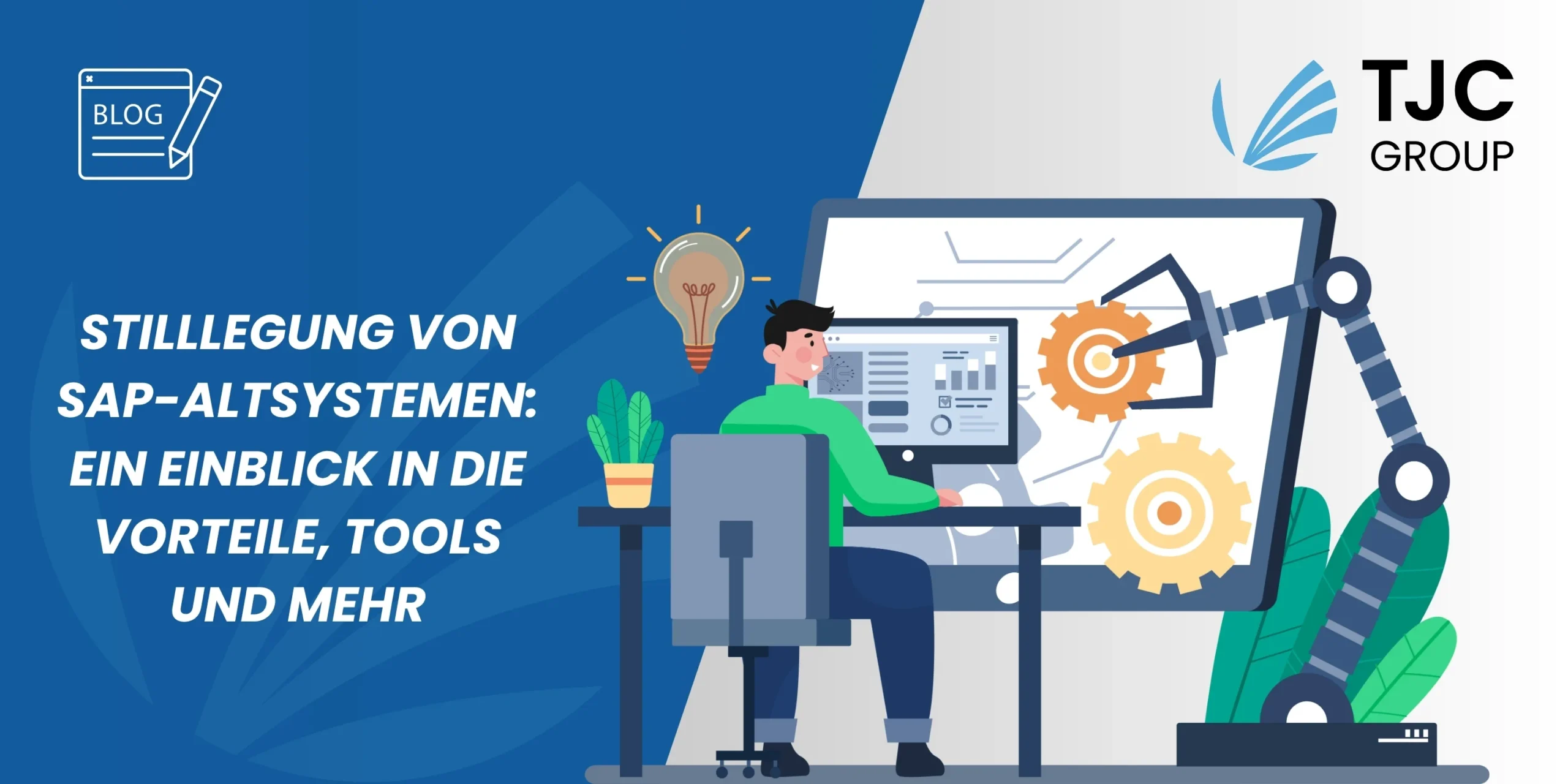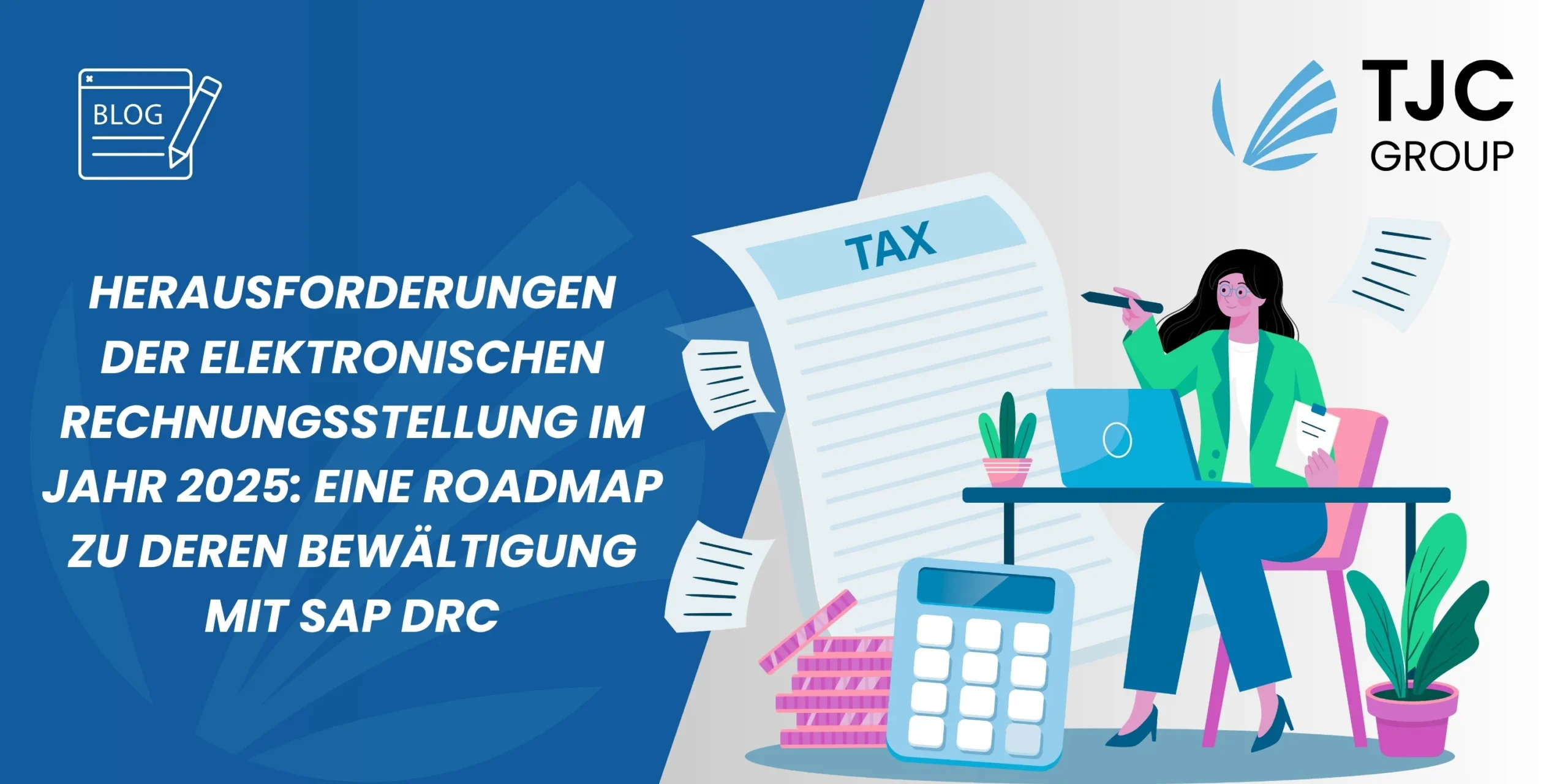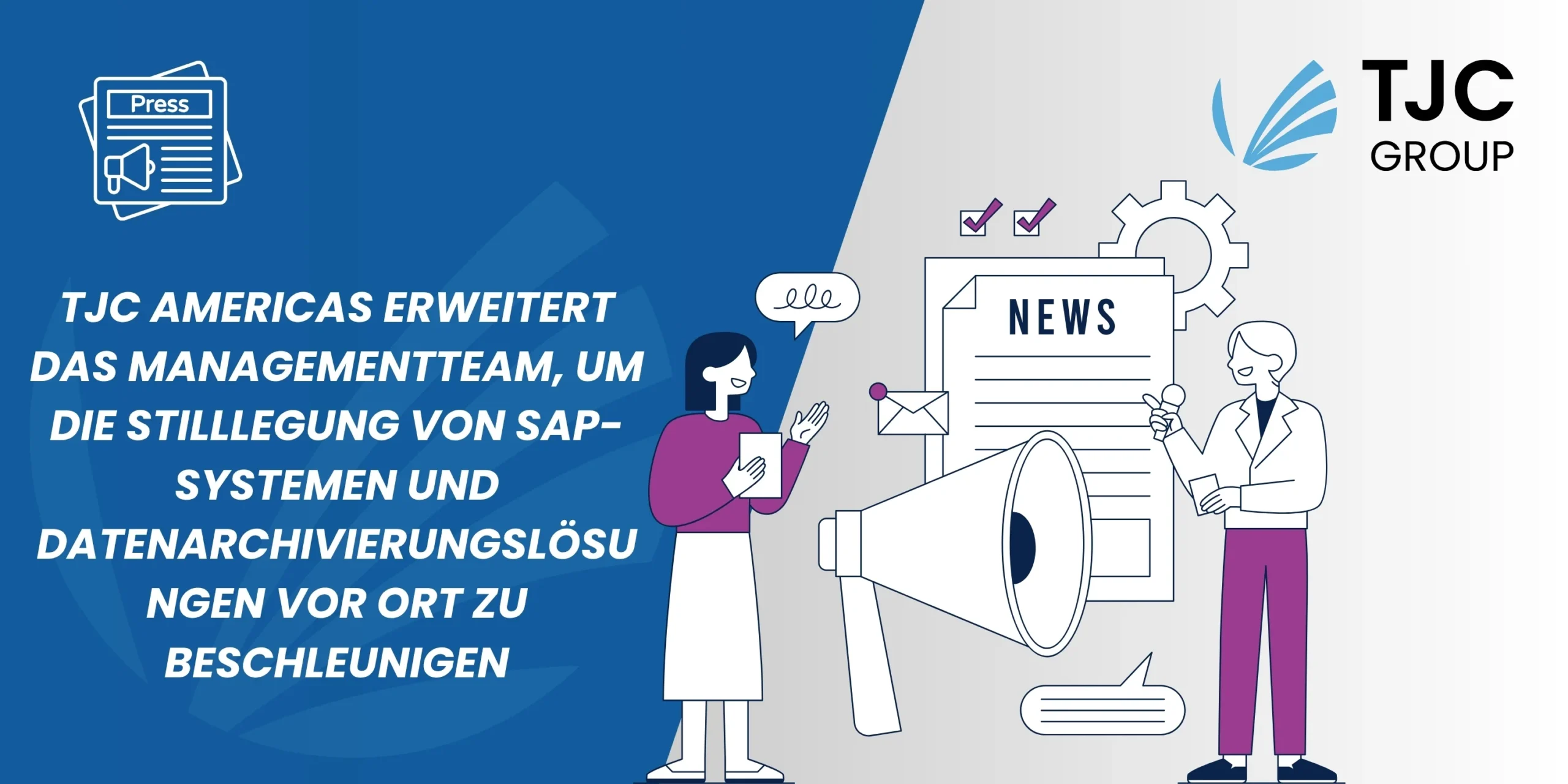Im Laufe der Zeit ist es unvermeidlich, dass die meisten Unternehmen erhebliche Datenmengen anhäufen, die über veraltete Altsysteme verstreut sind. Diese Systeme werden in der Regel nur selten genutzt, enthalten aber bedeutende Datenbestände, die für Geschäftszwecke und die Einhaltung von Steuer-, Audit- und Datenschutzbestimmungen unerlässlich sind. Folglich ist die Speicherung von Altdaten für ein Unternehmen von entscheidender Bedeutung, kann aber auch enorme Kosten verursachen und zu einer Belastung für die Ressourcen werden. Nach Angaben von IDC werden 70 % der IT-Budgets für die Pflege von Altsystemen ausgegeben.
Die Stilllegung von Altsystemen kann den Benutzern einen Kostenvorteil verschaffen. Altsysteme sind oft teuer in der Wartung und erfordern spezialisiertes Hardware- und Software-Personal für ihre Verwaltung. Durch die Stilllegung dieser Systeme können Unternehmen Geld sparen, indem sie neuere Technologien einsetzen, die effizienter und kostengünstiger sind.
Wenn Unternehmen wachsen und expandieren, ändern sich ihre technologischen Anforderungen. Es kann jedoch eine Herausforderung sein, mit der neuesten Technologie Schritt zu halten, da Unternehmen die mit der Aufrüstung verbundenen Kosten sowie die Risiken der weiteren Nutzung veralteter Systeme berücksichtigen müssen. Die Stilllegung von Altsystemen ist ein Prozess, der Unternehmen helfen kann, auf dem neuesten Stand zu bleiben, Kosten zu senken und die Effizienz zu verbessern.
Fünf Gründe für die Stilllegung von Altsystemen
Hier sind fünf Gründe, warum Unternehmen Altsysteme außer Betrieb nehmen sollten.
Verbesserte Sicherheit
Altsysteme sind oft anfällig für Sicherheitsbedrohungen, da sie oft veraltet sind und nicht mit den neuesten Sicherheits-Patches aktualisiert werden. Die Stilllegung von Altsystemen kann dazu beitragen, das Risiko von Datenschutzverletzungen und anderen Sicherheitsbedrohungen zu verringern, da Unternehmen veraltete Systeme durch sicherere Systeme ersetzen können.
Lesen Sie in diesem Artikel mehr darüber, wie veraltete Systeme von SAP-Schwachstellen betroffen sein können: https: //www.tjc-group.com/blogs/is-it-safe-to-keep-legacy-data-in-an-old-sap-system/
Kosteneinsparungen
Die Stilllegung von Altsystemen wird sich deutlich auf Ihre Betriebskosten auswirken. Altsysteme sind teuer in der Wartung und Aktualisierung. Die Stilllegung von SAP- und Nicht-SAP-Altsystemen senkt die Lizenzkosten, die Infrastruktur und den Ressourcenaufwand. Es sind nicht nur die Kosten für die Speicherung von Daten und die Bewältigung des von Jahr zu Jahr steigenden Datenwachstums, sondern auch all die anderen Aufgaben, die überwacht werden müssen. Server, Laufzeitsysteme, Betriebssysteme usw.

Experten, die wissen, wie man Legacy-Software verwaltet, sind schwer zu finden. Je älter ein Altsystem ist, desto schwieriger ist es, das für den Betrieb und die Wartung erforderliche Wissen zu finden.
Verbesserte Compliance
Gesetzliche Bestimmungen und DSGVO Datenschutzanforderungen werden bei alten Systemen häufig nicht durchgesetzt. Der sicherste Weg, Ihr Unternehmen vor zukünftigen rechtlichen und steuerlichen Anforderungen zu schützen, ist die Durchführung eines vollständigen Systemauszugs, so dass alte Daten und Dokumente immer unzugänglich sind.
Der folgende Artikel wirft ein Licht auf Datenschutz und Altsysteme: https://www.tjc-group.com/blogs/data-privacy-and-cybersecurity-why-decommissioning-is-the-safest-bet/
Grüneres Geschäft
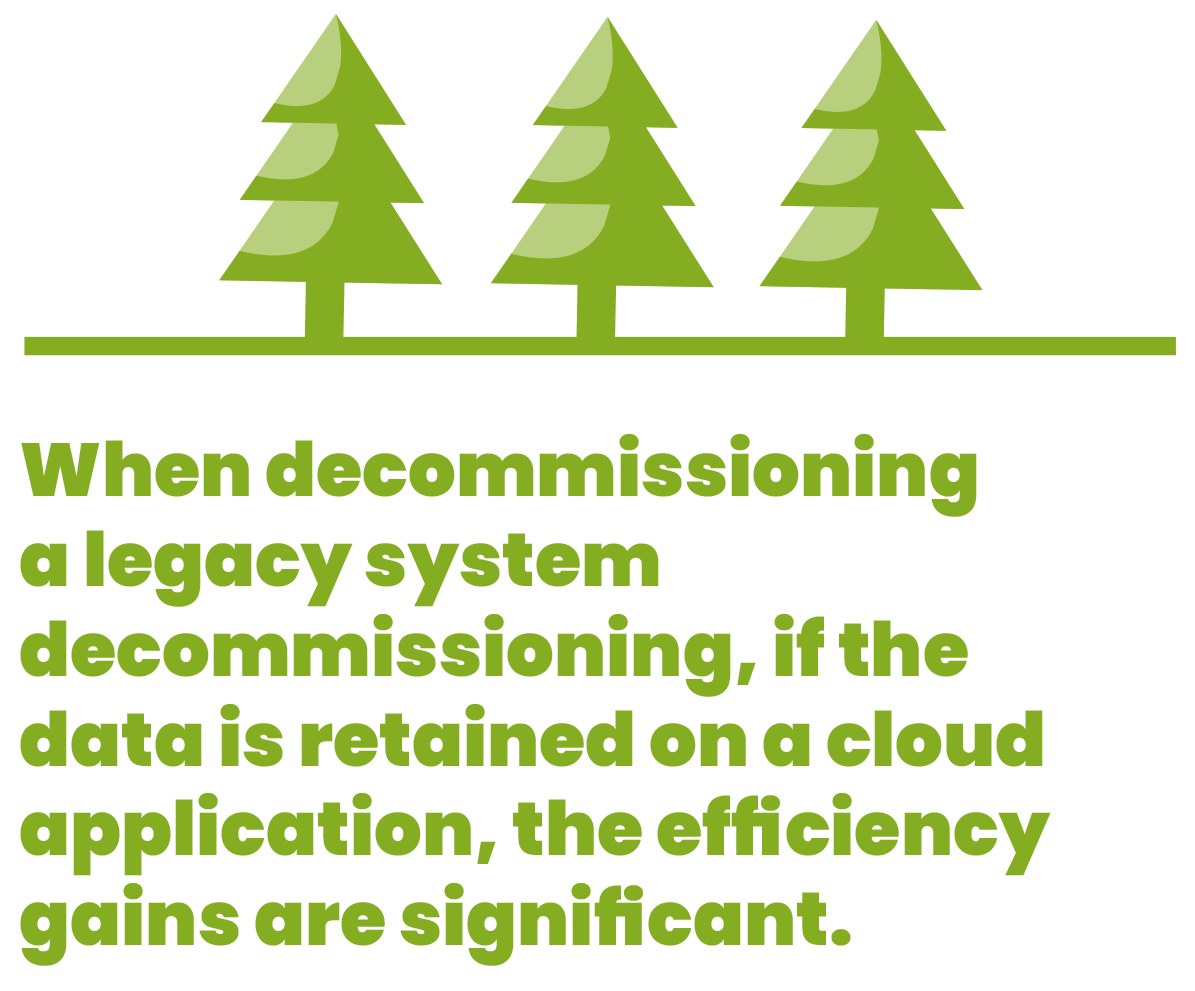
Lesen Sie mehr darüber, wie Sie Ihre Nachhaltigkeitsziele durch die Stilllegung von Altsystemen erreichen können: https://www.tjc-group.com/blogs/achieve-your-sustainability-targets-by-decommissioning-legacy-systems/
Verbesserte Effizienz
Altsysteme können schwerfällig und ineffizient sein. Die Stilllegung dieser Systeme kann Unternehmen helfen, ihre Effizienz zu steigern, indem sie sie durch schnellere und zuverlässigere Lösungen ersetzen und so technische Schulden vermeiden. Die Stilllegung kann sich bei Fusionen und Übernahmen, Veräußerungen oder bei der Umstellung auf die Cloud als äußerst wertvoll erweisen.
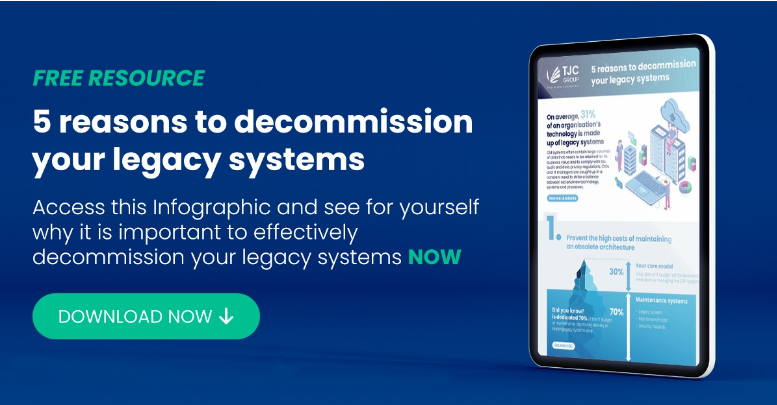
Was Sie vor der Stilllegung von Altsystemen beachten sollten
Die Stilllegung von Altsystemen kann komplex und zeitaufwändig sein, wobei eine Reihe von Faktoren zu berücksichtigen ist. Hier sehen wir uns einige der wichtigsten Dinge an, die bei der Stilllegung von Altsystemen zu beachten sind.
- Datenextraktion: Einer der wichtigsten Aspekte der Stilllegung von Altsystemen ist die Datenextraktion. Sie beinhaltet die Übertragung aller Daten aus dem Altsystem in eine Speichermöglichkeit mit allen Garantien, die für die zukünftige Einhaltung der Vorschriften erforderlich sind. Bei der TJC Group extrahieren wir 100% der Altdaten als Steuerarchiv.
- Zugriff auf Altdaten: Sobald das Altsystem abgeschaltet wurde, sollten Sie überlegen, wie Sie die Altdaten schnell und einfach abrufen können. Die neuen Benutzer werden mit den alten Systemen wahrscheinlich nicht vertraut sein. Deshalb haben wir bei der TJC Group eine Anwendung für das Altsystem, ELSA, entwickelt, die über eine unkomplizierte Schnittstelle verfügt, selbst für Benutzer, die mit SAP GUI-Transaktionen nicht vertraut sind.
- Sicherheit: Die Sicherheit der Daten ist ebenfalls ein wichtiger Faktor, der bei der Stilllegung von Altsystemen zu berücksichtigen ist. Es muss sichergestellt werden, dass alle Daten ordnungsgemäß geschützt sind und dass alle sensiblen Informationen verschlüsselt werden. Es ist auch wichtig, die Sicherheit des Systems selbst zu berücksichtigen. Dazu gehört, dass alle Zugangspunkte sicher sind und alle potenziellen Schwachstellen beseitigt werden.
“Durch die Stilllegung veralteter Systeme können Unternehmen ihre Kosten senken, ihre Effizienz verbessern und sicherstellen, dass ihre Systeme den Industriestandards entsprechen.”

Die TJC Group hat eine Cloud-Anwendung entwickelt, die eine problemlose Stilllegung von SAP- und Nicht-SAP-Systemen ermöglicht. TJC Group’s Enterprise Legacy System Application (ELSA) extrahiert einen detaillierten Prüfbericht aller Daten, der einen Nachweis der Vollständigkeit enthält. Erfahren Sie hier mehr über die wichtigsten Funktionen von ELSA: https://store.sap.com/dcp/en/product/display-2001010885_live_v1/enterprise-legacy-system-application-elsa-
Fazit
Die Stilllegung von Altsystemen kann entmutigend sein, aber sie ist ein notwendiger Schritt für Unternehmen, die auf dem neuesten Stand, sicher und vor allem rechtskonform bleiben wollen. Die TJC Group hilft Kunden auf der ganzen Welt, Projekte zur Stilllegung von Systemen in Angriff zu nehmen, um ihre SAP-Landschaft zu vereinfachen. Kontaktieren Sie uns noch heute für eine KOSTENLOSE Bewertung.





